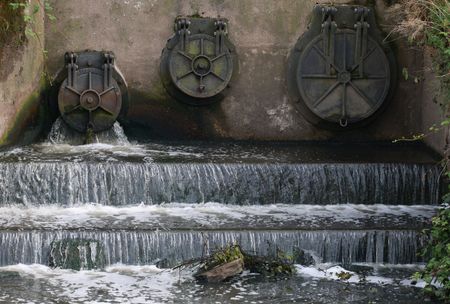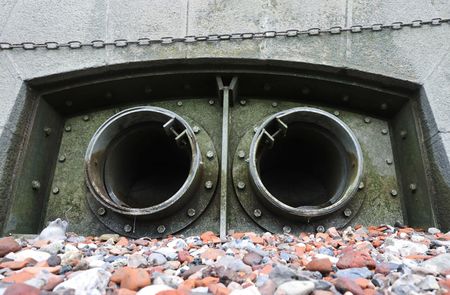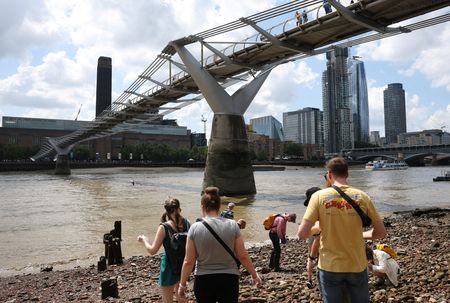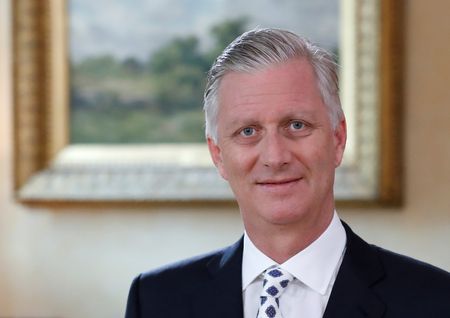By Sarah Young and Kate Holton
LONDON (Reuters) -Britain will create a new powerful regulator for its water industry following public fury over sewage spills, accepting the key proposal of an independent report that also suggested easing up on pollution fines to prevent companies from collapsing.
The Labour government, which promised major reforms for the debt-laden industry when it was elected last year, said the new system combining several different regulators in one would better protect the environment, investors and consumers.
The privatised water sector in England and Wales has sparked a public outcry by dumping record levels of sewage into rivers and lakes following years of under-investment, at the same time as paying big executive bonuses and dividends.
But the government faces a tricky task in turning round an industry where high debts have left some companies struggling for survival.
Symbolising the failure of the sector, Thames Water, the country’s biggest water supplier with 16 million customers and 17 billion pounds ($23 billion) of debt, is teetering on the brink of nationalisation, and warning that it cannot pay the sewage fines it is facing.
Former Bank of England Deputy Governor Jon Cunliffe, who led a review of the sector published on Monday, said a new powerful regulator should replace several bodies and that a formal turnaround regime should be established to give struggling companies space to recover under “regulatory forbearance”.
Environment minister Steve Reed said he had agreed to abolish financial watchdog Ofwat as part of the regulatory overhaul, with a new consultation and legislation to be proposed later this year.
But asked if Thames Water could be given breathing space on fines – a key demand of its bondholders who have proposed taking over the company in a last ditch effort to avoid nationalisation – Reed said the current legislation did not allow for that.
“We’re going to publish a white paper in the autumn, which will be our response to Jon’s report today, and then consult, but as things stand, Thames need to resolve the situation themselves as a stand-alone, private company.”
Thames Water has warned it could collapse next year without new investment, as it faces 1.4 billion pounds in pollution fines and penalties over the next five years.
INDUSTRY RESET
While Cunliffe’s proposals are the biggest shake-up of the sector since it was privatised in 1989, critics said they did not go far enough. Environmental campaigners want more radical change, such as the whole industry nationalised.
“Abolishing Ofwat and replacing it with a shinier regulator won’t stop sewage dumping or profiteering,” said Giles Bristow, the CEO of campaign group Surfers Against Sewage.
Cunliffe’s remit did not allow him to consider nationalising the water sector. Reed said that would cost 100 billion pounds, take money away from health and education, and lead to legal battles that would delay any improvements.
Under plans already set out by Ofwat, British water companies will get more than 100 billion pounds of investment in the next five years to respond to population growth and climate change, funded by an average 36% increase in customer bills – a huge rise that Reed told reporters was a one-off.
On Thames, Reed said the government was prepared for special administration – a form of temporary nationalisation – but that would put Thames’s debt on the national balance sheet, a situation it can ill afford.
“My hope and expectation is that the creditors will come to an agreement themselves,” he added.
A source close to a Thames bondholder welcomed the recognition that regulatory support was required.
($1 = 0.7460 pounds)
(Reporting by Sarah Young and Michael Holden. Editing by Kate Holton, Rachna Uppal and Mark Potter)













